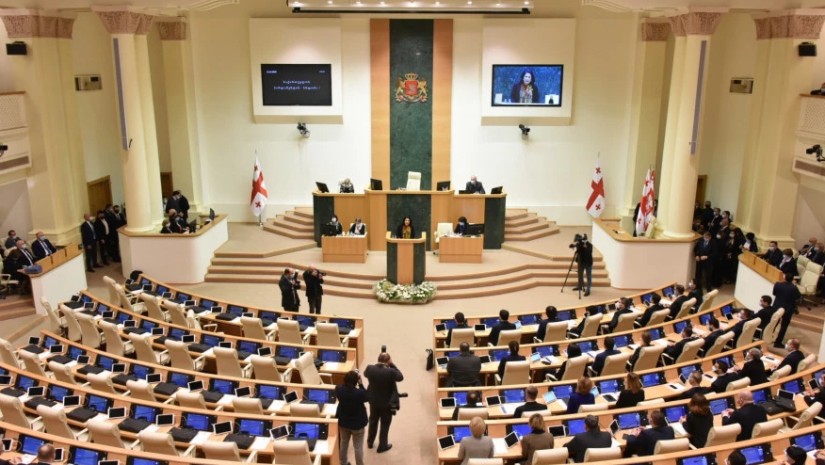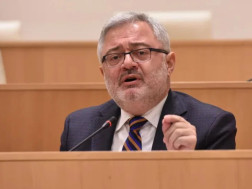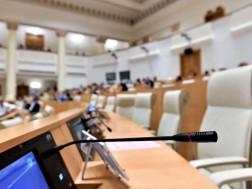In 2023, the Parliament became a closed institution. It transformed into an even more inaccessible and non-transparent institution for representatives of civil society and critical media. The denial of access to enter the Parliament and attend committee sessions was made without providing specific justification, citing only the general security regulations of the Parliament. The Parliament has ceased the release of public information that could potentially be used as grounds for criticism against MPs, - reads the report published by Transparency International Georgia.
“Granting the status of candidacy of the European Union to Georgia marked a pivotal event for the country in 2023. The role of the Parliament is crucial on the path of European integration.
In response to our request for public information, the Parliament did not provide us with the information it has routinely provided for the last 10 years: the count of speeches delivered by MPs and details on disciplinary actions taken against them, complete information on the activities of the committees.
Key findings
Granting the status of candidacy of the European Union to Georgia marked a pivotal event for the country in 2023. The role of the Parliament is crucial on the path of European integration.
In February 2023, members of the parliamentary majority from Georgian Dream’s offshoot “People’s Power” introduced two draft laws to the Parliament: “On the transparency of foreign influence” which was approved by the Parliament in the first reading. The discussion of the draft laws sparked considerable tension in society. The protests persisted from March 2 to March 8. . After the large-scale protest the ruling party decided to withdraw the bills. The people's resistance and their commitment to a European path played a crucial role in the country achieving candidate status for EU membership.
Further improvement of the implementation of parliamentary oversight notably of the security services is one of the steps defined by the European Commission as a condition for granting the status of a candidate country to Georgia.
Some of the nine conditions defined for Georgia continue the 12 recommendations issued by the European Commission in June 2022, while some are completely new. Georgia fully implemented three out of twelve conditions.
Statistical data
12 ministerial hours and 6 interpellations were held in 2023;
Accountable persons were summoned to the committee sittings 6 times (in 5 cases the initiator was the opposition, in 1 case the committee). The accountable person attended the session 5 times;
The deliberation period extensions were utilized in a total of 111 times for 73 legislative packages (245 bills)
The number of parliamentary questions decreased, 47 MPs sent a total of 2,997 questions to ministers and accountable persons, of which 77 were from the majority MPs, and 2,920 were from the opposition.[1] Opposition MP Tinatin Bokuchava sent the most questions (582 questions).
3 requests for the establishment of a temporary investigative commission were lodged in the parliament, all of which were initiated by the opposition. However, in none of these instances was the investigative commission formed.
The activity of Members of the Parliament
A total of 1,836,033.17 GEL was allocated for overseas business trips of the 98 members of Parliament.
The highest number of bills (105 bills) from the majority was initiated by Irma Zavradashvili, and from the opposition by Aleksandre Rakviashvili (74 bills);
Cezar Chocheli from the opposition missed plenary sessions the most times (23 absences) and from the majority Eliso Bolkvadze (13 absences)
Giorgi Godabrelidze from the opposition missed plenary sessions the most times without valid reasons (16 absences) and from the majority Mariam Lashkhi (10 absences)
In 2022, 52 members of the Parliament posed 5093 questions.
Important Legislative Amendments
Among the laws regarded as progressive are the following: new legislation regarding personal data protection and an amendment to the anti-corruption law, which mandates prosecutors to disclose asset declarations.
The following legislative changes are negatively evaluated: an initiative for a preliminary prohibition on temporary constructions during gatherings and demonstrations, modifications to broadcasting regulations concerning the management of hate speech, and amendments to accountability and oversight provisions in the Rules of Procedure”, reads the statement.
















